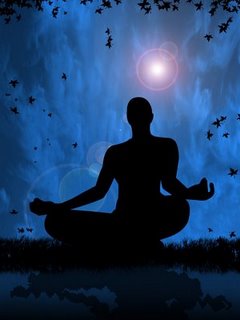-
Awareness
- One's Self
-
Recognition
-
Self Knowledge
- Rest
-
Knowledge
-
Formlessness
-
Bondage
-
Renunciation
-
Understanding
-
Acceptance
-
Ignorance
-
Freedom
-
Fearlessness
-
Achievement
-
Discrimination
-
Desire
-
Imagination
-
Opinions
-
The Self
Links of Similar Interest
-
Ribhu Gita
-
Avadhut
Gita
-
Adi Shankara Teachings
-
Sri
Ramakrishna Teachings
-
Raman Maharshi Teachings
-
Buddha Sangha WebLog
|
Astavakta Gita, Chapter 15 -- Of
Discrimination
Sage Ashtavakra
16.1
My son, you may recite or listen to countless scriptures,
but you will not be established within
until you can forget everything.
16.2
You may, as a learned man, indulge in wealth, activity and
meditation,
but your mind will still long for that -
which is the cessation of desire, and beyond all goals.
16.3
It is because of effort that everyone is in pain -
but no-one realises it.
By just this simple instruction,
the lucky one attains tranquillity.
16.4
Happiness belongs to no-one but that supremely lazy man
for whom even opening and closing his eyes is a bother.
16.5
When the mind is freed from such pairs of opposites
as, "I have done this" and "I have not done that",
it becomes indifferent to merit, wealth, sensuality
and liberation.
16.6
One man is abstemious and averse to the senses,
another is greedy and attached to them,
but he who is free from both taking and rejecting
is neither abstemious nor greedy.
16.7
So long as desire, which is the state of lack of discrimination,
remains,
the sense of revulsion and attraction will remain,
which is the root and branch of samsara.
16.8
Desire springs from usage, and aversion from abstention,
but the wise man is free from the pairs of opposites like a child,
and becomes established.
16.9
The passionate man wants to be rid of samsara so as to avoid pain,
but the dispassionate man is without pain
and feels no distress even in it.
16.10
He who is proud about even liberation or his own body,
and feels them his own, is neither a seer or a yogi.
He is still just a sufferer.
16.11
If even Siva, Vishnu or the lotus-born Brahma were your
instructor,
until you have forgotten everything you cannot be established within.
|

|
